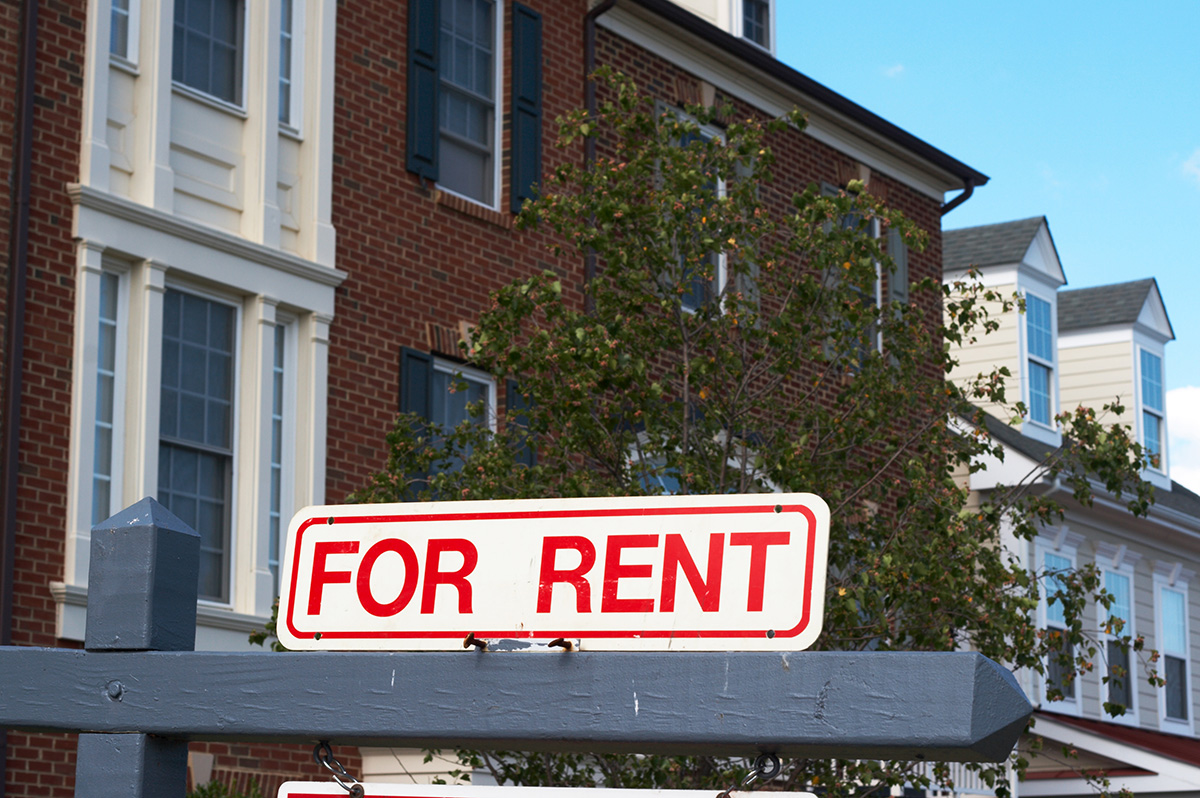Living
Ganymede Arts to close
Board, Johnson cite finances as main reason


Jeffrey Johnson cited finances as the main reason for Ganymede's closing. (Blade photo by Michael Key)
Ganymede Arts, Washington’s only gay-specific theater and arts company, is closing. Board members and director Jeffrey Johnson cited finances as the main reason.
“Since I took over in 2003, artistically it’s always been very successful,” Johnson said. “But there’s never been anything left over after each production. It’s part of the reason the previous guy left. There was security, no savings or money pushed back that made it easier on the front end. We’d have ticket sales and sell out most nights but after production expenses — and this was fairly across the board — we were back to zero.”
Ganymede was originally known as Actor’s Theatre of Washington but changed names in 2007 to be an LGBT-specific company with theater, dance, music and art. For four years, it held a fall arts festival, which sometimes attracted well-known celebrities like Karen Black, Charles Busch and Holly Woodlawn.
The board suffered several setbacks. Former board president Noi Chudnoff — also a big financial contributor — died in 2007 and the stock market crashed in 2008 affecting many arts organizations that rely on donations. Former board president Kevin Minoli said the board worked hard for the 2010 season — which included full-scale productions of “Naked Boys Singing” and “Falsettos” — in an effort to restore Ganymede to where it had been previously.
“I feel we got there last year and we were hopeful that once we got to that full production schedule things would rebound financially as well, but it took an enormous amount of work to make that happen and all of us on the board are volunteers,” Minoli said. “We mutually agreed that it made the most sense to close the company.”
Challenges dogged the organization over the years. Because the company lacked a permanent home — shows were often staged in storage spaces at Miss Pixie’s and Go Mama Go, both on 14th Street — seasons couldn’t be announced in advance. The board never knew if it would have the money or the space to open shows.
And because seasons couldn’t be announced in full, establishing a subscription base for patrons as many local theater outfits do, was impossible.
Johnson says he thinks the mentality for gay Washingtonians is to support larger operations.
“People give a lot of money to HRC, you know, the bigger-name stuff,” he said. “They always acknowledged us and came to our shows. We were always able to turn out a great audience when we’d have celebrities. Karen Black is still nuts about us to this day, but when it comes to larger donations, I think it goes to the Kennedy Center, Studio. This was our problem from the get go. We’ve never been able to compete with the Arena Stages and those theaters. We’ll take $2,000 and build a stage. They’ll put that into one costume. The difference between the bang for the buck has always been huge.”
Johnson says he feels “no regret at all.” He’s proud of the work Ganymede produced but says he’ll now have time to focus on his own endeavors. He performs often in D.C. as Special Agent Galactica, his pink-coiffed drag persona who, last New Year’s, started singing live after years of lip-syncing. Two Galactica shows are planned May 20-21 at the Black Fox in D.C.
Johnson says none of the big companies had gay nights or “pride nights” several years ago. He thinks Ganymede’s existence made them realize there was a market for the local LGBT audience.
That also became part of the problem.
“It’s one of those interesting things,” Minoli said. “As gay people have gotten more integrated in society as a whole, more companies are doing gay-themed shows. There’s the Albee festival going on right now. Gay people are going to see gay theater and gay art all across the city, so where there was a need for us at one point, maybe we’ve evolved and integrated to the point that the need isn’t as pressing now.”
But isn’t there something to be said for gay art produced by gays for gays?
“I think there is,” Minoli says. “We always said we were doing different things in different ways than what Studio, or whomever, was doing. They might do one gay show a season. So it is a loss to lose that, but I’m not blaming the community for not supporting us. We appreciate the support and all of our donors over the years.”
Real Estate
Stress-free lease renewals during winter months
A season when very few tenants typically move

January has a way of waking everyone up. After weeks of holiday noise, travel, family visits, and a general blur of activity, the new year arrives with its usual mix of resolutions, optimism, and responsibility. People start looking at their calendars again. To-do lists reappear. And tucked away in there is something many tenants didn’t give much thought to in December, their lease renewal.
Renewals in winter matter more than most people realize. It is a season when very few tenants typically move. The weather is unpredictable, schedules are tight, and most people are trying to regain their footing after the holidays. Because of this, renewal conversations tend to be more productive and more grounded.
Many landlords think of spring and summer as the heart of leasing season, and while that’s certainly when moves are most common, winter renewals hold their own kind of importance. A well-timed renewal does more than keep a unit occupied. It provides predictability for the year ahead, strengthens relationships, and reduces the costly turnover that smaller landlords want to avoid.
In my experience, tenants who might hesitate during another time of year are often relieved to secure housing before the pressures of spring and summer begin. Uncertainty is one of the prime causes of unnecessary turnover. If tenants don’t hear from their landlord, they often start browsing listings “just in case,” or asking friends about other options. Once that door is opened, it can be hard to close. Initiating the renewal process early helps anchor tenants before doubts start creeping in.
Tenants often make clearer decisions in January than they would in November or December. During the holidays, people are distracted and stretched thin; emails are skimmed, not absorbed; and anything involving planning often gets deferred until “after the new year.” When tenants return home in January, they have a better sense of their plans, their budget, and their needs for the coming months. This makes it a much easier moment to start or restart a renewal conversation.
The practical reality is that most tenants don’t want to move in the winter. Who wants to haul furniture across icy sidewalks or deal with last-minute moving delays due to storms? Beyond the weather, January is a time when people are reorganizing finances, filing paperwork, and settling into routines. The thought of a major transition simply doesn’t fit. Landlords can use this natural reluctance to create a smoother, more collaborative renewal process.
One thing I’ve learned over the years is that clarity is a landlord’s best tool. Tenants don’t need lengthy explanations, legal jargon, or complicated attachments. They simply want to know:
- Are the terms changing?
- If so, how?
- What does their timeline look like?
- Would the landlord consider another set of terms?
A concise, well-laid-out renewal offer does two things. First, it demonstrates transparency, which builds trust. Second, it keeps the conversation focused and productive. When tenants understand exactly what’s being proposed, there is less back-and-forth, fewer misunderstandings, and a quicker path to a signed agreement.
Tenants are more receptive when they feel they’re being treated fairly and openly. If there’s a rent adjustment, a brief explanation helps tenants see the reasoning behind it, such as increased operating costs, significant maintenance completed during their stay or alignment with the market.
Lease renewals are moments of connection. The best landlord-tenant relationships are built over time through small exchanges, transparency, and mutual respect. Renewal season offers an opportunity to reinforce that.
A simple acknowledgement of the tenant’s care for the home or their timely payments can set a positive tone. Even a short note of appreciation signals that you see them not as a lease term, but as a partner in maintaining the property. These gestures cost very little but create a sense of goodwill that carries through maintenance requests, policy reminders, and everyday communication.
Many landlords underestimate how much tenants value being treated as individuals rather than account numbers. A thoughtful, personal touch during the renewal process can make a tenant feel recognizednand more inclined to stay.
Renewals aren’t only about securing another term lease.They’re also a natural moment to check in on the overall health of the property and the tenant’s experience. J anuary provides a quiet space to step back and ask:
• Are there maintenance concerns the tenant hasn’t mentioned yet or that have not been fully resolved?
• Is the property due for upgrades or any preventative work?
• Are there responsibilities or expectations worth revisiting?
These conversations don’t need to be long or formal, but they help prevent the small issues of one year from becoming the larger problems of the next. A tenant who feels heard is more likely to take good care of the home, communicate proactively, and renew again in future years.
While landlords must maintain structure and protect their assets, a bit of flexibility can go a long way during the renewal process. Tenants are often rebalancing budgets after holiday spending. Offering digital signatures, Having brief calls to clarify terms, being flexible, or a few extra days to make a decision can ease stress without compromising the landlord’s position.
Flexibility is about recognizing human realities. Most tenants appreciate being treated with patience and professionalism, and often reward that consideration with prompt decisions and smoother communication. There are many reasons why a full year renewal may not coincide with their plans. Being able to work out mutually agreeable renewal terms makes the solution a win for both parties.
For landlords, especially smaller ones, stability is the foundation of successful property investing. A vacant unit, even briefly, costs more than most people realize. There are marketing expenses, cleaning, repairs, lost rent, and the unpredictable timeline of finding the right new tenant. By contrast, securing a renewal with an existing reliable tenant protects cash flow, reduces risk, and creates predictability in planning.
January renewals, when handled well, deliver this stability right at the beginning of the year. They give landlords a clear roadmap for budgeting, maintenance scheduling, and forecasting. They also give tenants the security of knowing exactly where they stand, which reduces stress on both sides.
A lease renewal may seem like a small moment in the life of a property, but in practice, it shapes the experience of the year ahead. When the process is organized, honest, and respectful, it sets a tone that carries through every interaction until the next renewal date.
January is a time to consider leaning into this approach. The pace is slower, the mindset is clearer, and both landlord and tenant are ready to step into the year with more intention. A renewal handled thoughtfully now paves the way for a smoother, quieter, more predictable twelve months, something every landlord and every tenant can appreciate.
Scott Bloom is owner and senior property manager at Columbia Property Management.
Advice
How to cope when a partner gives you the silent treatment
Punishing behavior brings up memories of parent’s mistreatment

Michael,
My wife and I met less than two years ago and we were crazy about each other from the start. We wanted to spend life together so we just went for it. Maybe this wasn’t the most well-thought out decision on either of our parts but we thought that love conquers all.
But lately we’ve been arguing. The stuff we’re fighting about is never such a big deal: chores, or spending, or wanting to do different things on the weekend. But when I don’t want to go along with Michelle’s point of view, she gets angry and shuts down. Sometimes she stops talking to me for as long as a few days.
This is painful for me. My mom used to pull this stunt when I was a kid and she was mad at me. She also cut me off when I came out. We’re still estranged.
Michelle has a whole different take on this. She says I am being “mean” to her (when I don’t go along with what she wants) and this is painful, and she has to “take a break” to cool off.
I know she comes from a volatile family. She has told me there was a lot of screaming in her house, and she barely has a relationship with her parents as a result. So I get that she’s sensitive to conflict.
But I don’t think I’m being mean to her by standing up for what I want — certainly not enough to warrant her giving me the silent treatment.
We got married to have a great life together. We often do but I can’t live with someone who just shuts me out when she’s annoyed with me.
If I became a doormat and went along with everything she wants and never pushed back or complained, maybe she wouldn’t shut down. But I don’t want to do that.
I’d appreciate some ideas to improve the situation. I don’t want a divorce but I also don’t want to keep being mistreated.
Michael replies:
You can think of marriage — or any serious relationship — as a gym where you have ongoing opportunities to become an increasingly resilient person in the face of the ongoing challenges that an intimate relationship poses.
Your task here is to shift your focus toward figuring out how to handle yourself well, even in the awful circumstance of getting the silent treatment.
Michelle is not under an obligation to behave as you’d like her to. You can certainly ask her to stop withdrawing when she’s angry at you. But that doesn’t mean she is going to honor your request.
I well understand that Michelle’s punishing behavior is bringing up painful memories of your mother’s mistreatment. But if she doesn’t change her behavior, you have to find a way to live with Michelle as she is, with as much equanimity as you can muster, for as long as you choose to be married to her. If she does not change and you find her behavior to be unbearable, you can leave.
Every time she shuts down, Michelle is handing you an opportunity to figure out how you, yourself, can deal with feeling hurt and let down, rather than depending on someone else to behave as you’d like her to, or not upset you, or soothe you. Being in charge of your own mood rather than letting someone else press your buttons is a great skill to get better at.
I’m not going focus on what techniques you might use to soothe yourself — that’s a different column (or even better, a number of therapy sessions). That said, knowing that Michelle’s behavior comes from her history might help you to take it less personally. And, simply keeping in mind that living with a difficult spouse is unavoidable and worth getting better at may help you to quiet yourself down.
Another challenge that your marriage is pushing you to work on: Discerning when you can be generous, and when it is important to have a boundary. Of course, I understand that you don’t want to be a doormat by going along with whatever Michelle says and wants. But is it possible that she has a point, in that you could stand to lean more in her direction?
None of us get to have everything the way we want when we are in a relationship (much less in life). Figuring out the interplay between generosity and boundary is complicated. It often involves considering what is important to your partner; and deriving joy from her getting some of what is important to her, not only from your getting what you would like. And of course, it also involves figuring out what is most important to you.
If you set a boundary thoughtfully, because something is important to you, and Michelle doesn’t like it, you’re being handed an opportunity to get better at tolerating disappointment. Being a disappointment to your partner, and being disappointed in your partner, are both unavoidable parts of marriage: We’re all different, and at times will make choices that the other person really does not like.
If we make our decisions from a place of integrity rather than whim, entitlement, anger, or “whose turn it is”, and strive to honor the choices that our partners make from a place of integrity, this often makes the disappointment easier to bear.
Of course, it would be great if Michelle would join you in working to become a more solid and resilient spouse. As I mentioned earlier, you can’t persuade her to do so. But you can certainly tell Michelle what you are working on and ask her to consider how she, too, might use your relationship difficulties as a challenge to grow.
It isn’t easy to have such a conversation without sounding condescending. You are better positioned to do so when you are walking the walk, not just talking the talk. One good rule of thumb is to put you and your partner in the same boat, making it clear that you see the two of you as facing the same challenges, rather than positioning yourself in a superior position. Another is to initiate the conversation when you are both calm, rather than in the middle of a fight or when you’re getting the silent treatment.
One more point: If Michelle is willing, I’d suggest that you propose couples therapy as an opportunity for you two to collaborate on building a consistently loving relationship where neither of you lets your reactivity run the show.
Michael Radkowsky, Psy.D. is a licensed psychologist who works with couples and individuals in D.C. He can be found online at michaelradkowsky.com. All identifying information has been changed for reasons of confidentiality. Have a question? Send it to [email protected].

Electric-vehicle tax credits may have faded earlier this year, but EVs themselves are far from losing their spark. There are more charging stations than ever, battery ranges are longer and more realistic, and automakers have finally figured out that EVs don’t all need to look like geeky science projects or feel like failed beta tests.
Just look at these two compact electrics, which are futuristic, fun and flexible enough for work or play.
HYUNDAI IONIQ 5
$37,000 to $48,000
Range: 245 to 318 miles
0 to 60 mph: 4.5 to 7.4 seconds
Cargo space: 26.3 cu. ft.
PROS: Fast charging. Roomy cabin. Silky-smooth suspension.
CONS: Wide turning radius. Rear wiper not on all trims. Price creep.
After being introduced three years ago, what’s new for the latest Hyundai Ioniq 5? Mostly refinement. Charging is quicker, software is smarter and Hyundai continues to quietly listen to feedback, tweaking ride comfort and usability. Think of it as switching from messy eyeliner to a perfectly sharp wing.
Exterior styling remains one of this EV’s biggest conversation starters. Those pixel-inspired lights, crisp lines and slick hatchback-meets-crossover proportions exude refreshing confidence. There’s no trying to blend in, and that’s the point. Park this Hyundai anywhere and heads will turn.
On the road, the Ioniq 5 prioritizes calm over chaos. Steering is light, the suspension smooths out rough pavement and acceleration feels brisk without being aggressive. Safety tech is plentiful and well-calibrated—adaptive cruise control, lane-centering, blind-spot monitoring—all working together without seeming like a nervous backseat driver. IOW, this ride is supportive, not clingy.
Inside, the user-friendly cabin shines. The flat floor and long wheelbase create a lounge-like atmosphere, with excellent legroom and airy visibility. Seats are well-bolstered and available with eco-friendly materials, and the sliding center console adds flexibility. Cargo space is generous, and the wide windshield makes city driving stress-free. Alas, the rear wiper is only available on select models. Overall, though, I appreciated how everything looks modern without feeling cold.
What makes this Hyundai special is its vibe. An EV that embraces individuality without shouting about it.
Fun fact: The Ioniq’s ultra-fast charging can add hundreds of miles in under 20 minutes—perfect for those who hate waiting almost as much as they hate small talk on awkward first dates.
VOLKSWAGEN ID.4
$46,000 to $59,130
Range: 206 to 291 miles
0 to 60 mph: 4.4 to 7.7 seconds
Cargo space: 30.3 cu. ft.
PROS: Sure handling. Decent range. Good storage.
CONS: Body roll in curves. Fussy infotainment. No frunk.
The latest VW ID.4 focuses on polish. Software updates have fixed earlier frustrations, and overall drivability feels more cohesive. Less “learning curve” and more “hop in and go,” like a dependable bestie who doesn’t overthink things.
Styling-wise, this EV is intentionally inoffensive. Soft curves, friendly lighting and a familiar crossover shape make it approachable. While the ID.4 won’t turn heads like the Ioniq 5, that’s OK. It’s more akin to a classic outfit that always works—timeless, not trendy.
Driving the ID.4 is relaxed and predictable. This SUV prioritizes comfort over thrills, with a suspension tuned for daily commuting and long highway drives. Safety features are comprehensive and reassuring, including excellent lane assistance and collision-prevention systems. It’s the kind of car that quietly has your back, no drama required.
Inside, the ID.4 offers a calm, uncluttered cabin with good space for passengers and cargo alike. Rear-seat legroom is especially strong, making it a solid road-trip companion. The seats are plush, visibility is good and while the infotainment system isn’t the most intuitive, it’s improved enough to be more than tolerable.
The ID.4’s special sauce is balance. It doesn’t try to reinvent the wheel—it just electrifies it.
Fun fact: This is one of the most globally popular EVs, proving that sometimes being universally liked is a strength, not a personality flaw. Think, gold star gay who still surprises you.

-

 Colombia5 days ago
Colombia5 days agoGay Venezuelan man who fled to Colombia uncertain about homeland’s future
-

 Arts & Entertainment5 days ago
Arts & Entertainment5 days ago2026 Most Eligible LGBTQ Singles nominations
-

 District of Columbia4 days ago
District of Columbia4 days agoKennedy Center renaming triggers backlash
-

 District of Columbia5 days ago
District of Columbia5 days agoNew interim D.C. police chief played lead role in security for WorldPride


















